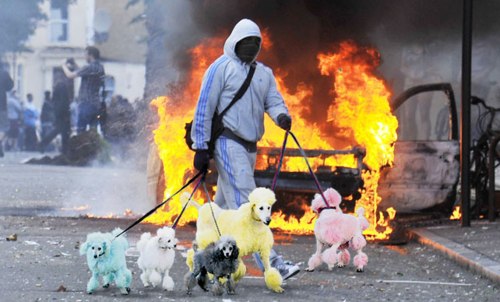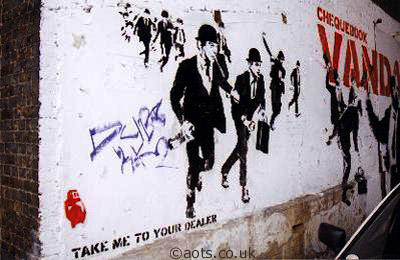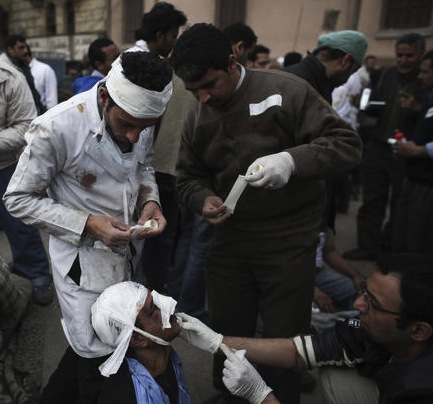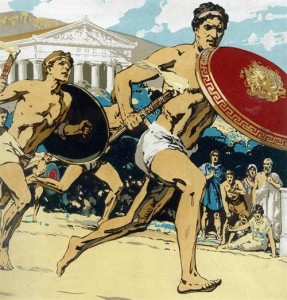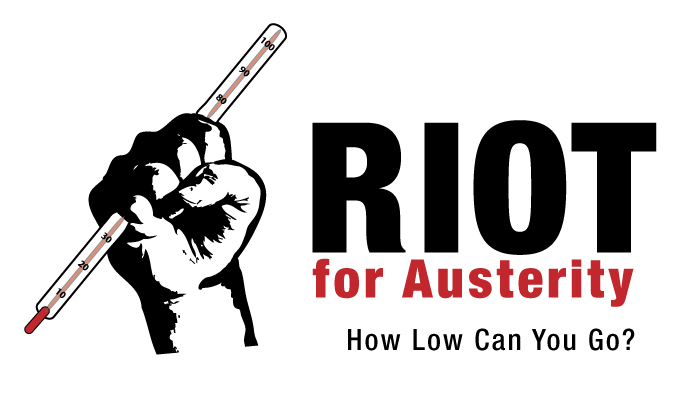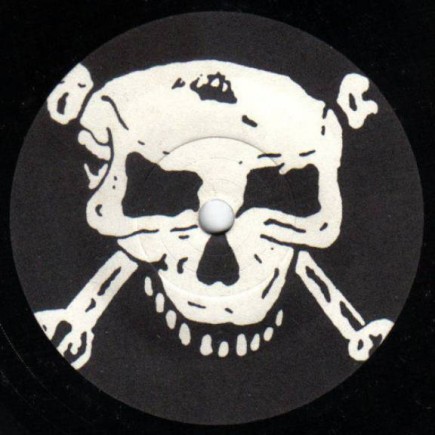
A few days ago the following post appeared on the website of the Class War Federation.
The Class War Federation is no more.
Given our inability to continue to function at an organisational level and the huge amount of debt that the organisation finds it self in we have no choice but to formally dissolve the group.
Given that we only have 5 paid up members it is the decision of the five of us to end our association and in doing so end the project known as Class War.
Déjà vu? 14 years ago, we were members of the Class War Federation and were part of a faction that successfully argued for its dissolution. As it turned out, a rump continued… and following changes in membership which I’ve had no interest in following, it looks like the last remaining few have finally decided to call it a day.
In fact our reasons for dissolving Class War were neither organisational nor financial. (At least not organisational in the sense that we weren’t able to carry on the day-to-day tasks on maintaining the organisation’s structures, producing a paper, etc., though these tasks were frequently onerous.) Our reasons were political. In short, we decided that Class War was incapable of making sense of the changed social and political terrain of Britain in the 1990s. It was incapable of understanding new movements, such as Reclaim the Streets and the anti-roads struggles more generally, not to mention the problematics and possibilities opened up by the Zapatistas.
As part of this project we produced what we hoped would be a final issue of Class War the paper and organised a national conference — May Day ’98, held in Bradford — inviting various anarchists, anti-authoritarian communists, militant environmental activists and others for three days of discussion. With the decision to dissolve Class War and the production of the final issue of the paper, we’d done a lot of soul-searching and been very self-critical. But we reckoned that the problems we’d identified weren’t just ours — they applied to most if not all of the groups on ‘the left’ (including the anarchist ones) — and we hoped that others would question their own political practices too.
We probably had some success and the discussion at May Day ’98 was intense and, I think, productive. But others used Class War’s dissolution as an invitation simply to stick the boot in some more. We’d been self-critical, but this wasn’t enough for many on the left and there were several ‘and another thing’ type attacks which seemed to be written from pure positions of certainty. One example was ‘Death of a Paper Tiger‘, published in Aufheben, and linked to again in the libcom discussions on Class War’s second death.
In the last 14 years, arguments about Class War seem to keep cropping up on forums like LibCom. I’ve tended to steer clear and when I have dipped in I’ve been pretty unimpressed. (A recent post complained about the skull-and-crossbones logo, comparing it to the SS insignia.) In fact, rereading ‘Death of a Paper Tiger’, for example, I’m struck with how weak it is — its analysis, never mind its patronising and uncomradely introductory note: ‘But we do recognize that some people joined Class War out of a sincere desire to challenge this society and did some good things to further that goal while in Class War.’ I remember agreeing with much of the article at the time — and I still do agree with many of its criticisms of CW — but it fails to seriously address any of the what I’d today call problematics that Class War was wrestling with.
But this enduring fascination with Class War is itself fascinating. [A few years ago I did a talk at a meeting in Lund, Sweden and the organiser asked if I could put Class War in its title as this would attract a bigger audience — even though it was a decade since I’d been involved. And the first question was about Class War.] So, it might, after all these years, be worth putting down some of our thoughts on the subject… I’m making no attempt at any sort of nuanced, critical analysis of Class War — that can wait for another post. Instead I want to make some notes on what was good and important about Class War.
Working-class identity politics?
Quite a common criticism of Class War is that it glorified working-class identity, and a particular type of working-class identity. E.g. in the recent discussion somebody posted:
They’ve never been a class struggle group, it’s always been identity politics – worse, one based on a caricature.
?
Well… there’s identity and there’s identity politics, and there’s anti-identity. (Deleuze and Guattari, John Holloway and Sub-Commandante Marcos have all offered insights on this in various places.) Asserting I am black [or a Jew or a woman or queer]— and proud of it is not equivalent to saying I am white [or Aryan or a man or straight] and proud of it. And the ‘inequivalence’ of such pairs depends on the context — the time and place. The first statement can often be understood as anti-identitarian as it challenges the position of the dominant, majority identity. (‘Majority’ used here in way Deleuze and Guattari use it. I.e. male identity is majority desite woman making up slightly more than half of the population; white identity majority in apartheid South Africa.) In 1980s Britain, the majority identity was middle-class — it still is, of course, but in the 1980s this represented a break from the earlier, Keynesian, more collectivist era. Thatcher introduced the idea of a ‘property-owning democracy’ and policy of allowing council-house tenants to buy their homes. Having a mortgage meant being/becoming middle-class.
Of course, nobody wants to be working-class; we all want to escape the relation to capital, to work, to money, etc. that being working-class implies. As Holloway puts it somewhere in Change the World Without Taking Power the working class is better understood as an anti-working anti-class: this is Marx and Engels’ point about the working class abolishing itself. But this escape must be collective if the class (and classes) are to be abolished. With neoliberalism’s/Thatcherism’s attack on working-class organisation, the discourse that escape could only be individual became deafening. [As the author of ‘Death of a Paper Tiger’ writes, ‘Class War [was] the bastard child of Thatcherism’. Well, yes, of course. Anti-capitalist struggles and capitalism always develop in relation to one-another. It’s always possible to say this struggle is the product of that policy or that that policy was proposed in response to this struggle. Substituting ‘bastard child’ for ‘product’ makes it sound more of criticism, without much changing the meaning.] So, given this context, attempting to promote a strong working-class identity is not necessarily a bad thing to do. ‘Death of a Paper Tiger’ again: ‘Class War responded by publicising themselves as the defenders of the traditional working class values of these communities’. Values like solidarity and mutual aid?
Reversal of class perspective
It’s true that Class War frequently seemed to promote a particular type of working-class identity, maybe at times a ‘caricature’, as charged above. But really, what it was trying to do was represent the working class as ‘proud and menacing’. Here Class War was simply following the advice of the ‘father of Italian workerism‘ Mario Tronti in 1980: ‘As a matter of urgency we must get hold of, and start circulating, a photograph of the worker-proletarian that shows him as he really is — “proud and menacing”.’ In the context of the British political landscape this was an enormously important shift. In the mid-’80s (when Class War was formed), particularly during the 1984-85 miners’ strike, almost all of the left depicted the working class as victims and as passive, whilst anarchism tended to be dominated by pacifists. Class War challenged both: the working class is an active subject in the making of history, and sometimes that history involves violence. And what better expression of the reversal class perspective than the aphorism used on the masthead of Class War for several years: ‘The great only appear great because we are on our knees. Let us rise’. (Variously attributed to Max Stirner, Bakunin and James Connolly.)
Bash the rich
Capital is a social relation. It’s an abstract dynamic, what Marx called a ‘real abstraction’. Of course, Class War didn’t understand this, choosing instead to personify this social relation by attacking the police, bosses, the royal family and ‘the rich’. But the social relation is asymmetric, in a couple of ways. It’s asymmetric in the sense that capital needs and will always need labour — that is, the living human beings that become labour in the capital relation. But, we, as human beings, don’t need capital. This asymmetry is in our favour. But it’s also an asymmetric relation in that when a capitalist enterprise fails those who work for it may lose their whole livelihood: when workers lose their jobs, they may also lose their homes as well. But a capitalist’s risk — or liability — is nearly always limited. In fact, the legal concept of limited liability is one of capitalism’s most important ‘innovations’. A shareholder-capitalist may walk away from a bankrupt business and its debts, losing only the value of his or her shares, with profits securely banked — creditors, who nearly always include workers owed unpaid wages, may end up with nothing.
In this context, trying to personify the relation, however imperfectly or theoretically incorrectly, can be enormously powerful and liberating. Attacks on capitalists say: we won’t let you forget you’re a human being too; you cannot limit your liability; we will make you liable. As we wrote in ‘Six impossible things before breakfast‘:
For us, one of the most liberating moments in the 1980s was the way that anarchist politics gave names (and addresses) to the people who dominate our lives. It broke the rules of the game. It rejected the power imbalance between rich and poor, the asymmetry of a world where profits are privatised but loss is always socialised. (Look at the current credit crisis: whilst the ‘subprime’ poor are being turfed onto the streets, top bankers are selling third homes or luxury yachts.) In a bizarre way, naming the rich re-asserts a common humanity by denying them the ability to hide behind limited liability companies, off-shore tax havens, and multi-layered management. It is an echo of Lucy Parsons in 1885 when she said ‘Let us devastate the avenues where the wealthy live.’
It’s funny because, in some ways, the more we stress that capital is a social relation, the more we reinforce the continual process of fetishisation essential to capital’s reproduction. The executive relocating a factory to somewhere where wages are lower, the manager sacking a worker, the politician cutting a service all claim their hands are tied, there’s no alternative, they’re just obeying the laws of the market… and we, when we discourse on capital’s logic, the ‘laws’ of capitalist development, etc. quite frequently agree: yes, your hands are tied, you have no alternative, you’re just obeying the laws of the market! But paraphrasing Wildcat, bosses do a difficult job in difficult circumstances… and that’s why we hate them. Part of our role as anti-capitalist militants is to attempt to defetishise the capital relation, i.e. locate the human content in it. Personifying/naming the enemy is one way of doing this.
Resonance
Finally, much of what Class War said and did seemed to resonate. As an organised group I don’t think Class War ever numbered more than a hundred or so members, probably far fewer active members. But the ideas expressed in Class War must have struck a chord, even inspired, many many more people, even if they didn’t actually mobilise them. Something would happen somewhere, some action, institigated by people with no formal connection to Class War as an organisation. But asked who they were, the response would come: “We’re Class War!”
 One of the triggers for my post on Ed Miliband’s “quiet crisis” (published in revised form on the Guardian’s CIF site yesterday) was a Guardian Comment by Costas Lapavitsas. Lapavitsas suggests that the “return to agriculture” in Greece is “a sure sign of social retrogression”.
One of the triggers for my post on Ed Miliband’s “quiet crisis” (published in revised form on the Guardian’s CIF site yesterday) was a Guardian Comment by Costas Lapavitsas. Lapavitsas suggests that the “return to agriculture” in Greece is “a sure sign of social retrogression”.

